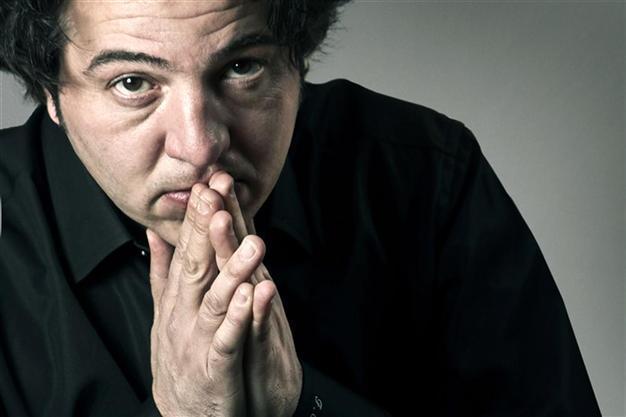Turkish pianist Fazıl Say sought to ‘humiliate religious values’ with tweets: Court
ISTANBUL

Fazil Say, 43, is an internationally renowned Turkish pianist. AP Photo/Fazilsay.com, File
A Turkish court that sentenced world-renowned Turkish pianist Fazıl Say to a 10-month suspended jail term for blasphemous tweets released its justification for the conviction today, saying the musician’s aim was to "humiliate religious values.”Say's remarks on Twitter did not aim to contribute to any public debate, the 10-page reasoned decision said.
Instead, Say's aim was to harm the religious values which are shared by the three biggest monotheistic religions without purpose, according to the court verdict.
His motive was to humiliate religious concepts such as "God, heaven and hell" by giving the idea that they were "meaningless, unnecessary and worthless," the verdict said.
Say was dealt the suspended 10-month prison sentence on April 15 for “insulting religious beliefs held by a section of the society,” bringing to a close a controversial case while sparking fiery reaction in Turkey and abroad.
Meanwhile, Turkish Deputy Prime Minister Bekir Bozdağ stated earlier today his opinion that the freedom of speech did not extend to “insults and swearing,” responding to a question during his visit to a hat exhibition in Ankara, according to Anatolia news agency.
“In a state of law, people should be able to express their thoughts. Thoughts might be shocking or disturbing. They may not be accepted by everyone, but everyone must respect them. However, if we take insults and swearing to be part of freedom of thought, then we would be calling it freedom to insult and freedom to swear,” said Bozdağ.
“Mr. Say is a great artist. We take pride in his works. But his remarks are of a kind that will offend almost all people living in this country and in my opinion this is not freedom of thought. I see it as swearing at someone’s values. The court has given such a decision as it made such an evaluation… Nobody should confuse freedom of thought with freedom of swearing,” he added.
















